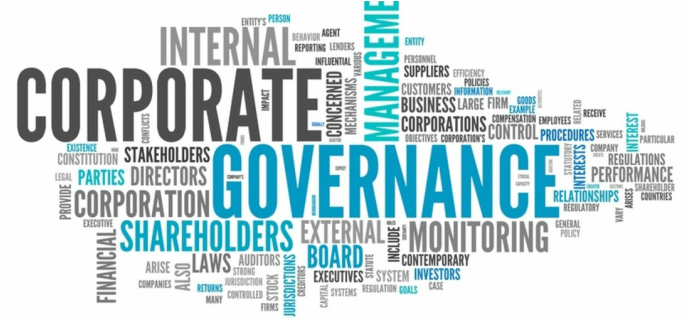|
The last five years of my life have been dominated by research—the goal being to begin to understand how boards influence firm performance through their contributions in the boardroom. It's been a tough journey at times, but the end is now in sight—and thank goodness because a groundswell of interest in how my research might be applied to real situations is starting to become apparent. People in Australia; the UK; Europe; USA; South-east Asia; the Middle East; and, New Zealand have been in touch with questions and requests. While the research is yet to be published, enquiries are arriving from many quarters including invitations to write an editorial for a leading magazine; speak at the Governance Institute of Australia National Conference; participate in a multi-city (Europe and Asia) speaking tour in 2017; prepare a webcast; and, write a book for practicing directors. These are on top of confirmation from the prestigious Leadership and Organization Development Journal that an article of mine will be published soon (Vol 37, Issue 8), and earlier commitments to deliver a webinar to a world-wide audience; tailor a governance development programme for members of an industry association; and, facilitate several workshops to help companies refine their corporate purpose, strategy and governance frameworks. That so many people have begun to question 'conventional' corporate governance thinking (that the board and management must be kept separate; that particular board structural configurations lead to better firm performance; and, that the term 'governance' can be widely applied including beyond the boardroom) has caught me somewhat by surprise. However, my commitment to serve boards and directors who are intent on exerting influence from the boardroom in pursuit of an agreed corporate purpose is a matter of public record. So respond I shall (and happily so). If you want to ask a question or toss around some ideas, please get in touch. I look forward to the discussion.
0 Comments
I'm thrilled to announce that the Madinah Institute for Leadership and Entrepreneurship (MILE) has invited me to present a webinar entitled Influencing company performance, from the boardroom. The webinar will start at 3:00pm Saudi time on Sunday 2 October—to suit American, UK/European, Middle Eastern, African and Asian company directors and board members in particular. For more information, click here. You'll need to register (free). The following topics will be discussed during the 45-minute webinar (with an open Q&A session afterwards):
Reserve your place today!
Subject to two pending confirmations, the schedule for my upcoming visit to London (14–20 September) is full. During this short visit, I will be participating in the Organizations with Purpose conference (16–17 September) at London Business School (in conjunction with the Blueprint Trust); attending a non-executive director forum; meeting (separately) with ICSA and ICGN executives; discussing my involvement in a significant event in 2017; fulfilling requests for confidential meetings; advising several clients; and, delivering a presentation. While the visit will be fleeting (and busy!), I am hopeful of realising a long-time ambition: to climb the dome of St. Paul's Cathedral on Sunday 18th, my day off. The high level of interest in my work has been both humbling and gratifying. Thank you for your support! Looking ahead, I'll be returning to the UK and Europe is in October (19–28th), culminating with the 13th EIASM Corporate Governance workshop in Milan (I will be presenting a paper there). If you would like to learn more about my governance research (especially implications for practice); have a confidential discussion about a sensitive topic; or, discuss the possibility of me addressing your board or a public event, please get in touch. Recent experience suggests that the diary is likely to fill up quickly, so it would be wise to act promptly.
One of the great challenges all business leaders face is the question of how to make an impact on the overall performance of the firm they lead. Boards are no exception. Effective boards are comprised of capable people who assess situations, make strategic decisions, and oversee management to ensure goals are achieved. The challenge of leading well and making an impact on business performance is very real, especially in today's environment of fluid work patterns and declining levels of employee loyalty. Boards are responsible for company performance, yet they do not run companies directly (that is the job of the chief executive). How might boards respond to ensure firm performance goals are actually achieved? Here are some considerations:
The importance of this last consideration should not be underestimated: if employees cannot collaborate effectively because crucial information is missing or hard to access, overall performance will suffer—period. The impact on employee morale, productivity and the bottom line is likely to be very significant. The board needs to know how the business is performing relative to the agreed strategy, and the whether expected outcomes and associated benefits are being achieved (or not). Financial reports only tell part of the story. Employee engagement is an important though often overlooked indicator. If your board isn't sure whether employees are fully engaged, it needs ask the chief executive some probing questions; request a staff engagement survey; seek regular updates from senior managers (in addition to the chief executive); or, pursue some combination of these and other options (*). If employee engagement is low or any inconsistencies are discovered, weak information flows or ineffective collaboration within the company and/or with customers are likely to be contributing factors—a starting point for further investigation and subsequent decision-making. (*) Boards that lack direct expertise to actively pursue these suggestions themselves should seek independent advice from a seasoned expert, to help them understand what might be possible, establish benchmarks and inform future board decisions. A long-time colleague of mine, Michael Sampson, is one such person. He is an expert in the fields of workforce collaboration, teamwork and new approaches to work. Michael also speaks at conferences around the world and has written several books. I commend him to you.
When Theresa May went on record recently, the key message for boards was that they needed to pull their socks up lest additional structural measures including employee directors become a requirement for UK companies. Much of the commentary was aimed at the boards of publicly-listed companies, in an attempt to curb (perceived and real) corporate excess in the form of excessive remuneration; hubris; and, a flagrant disregard of some stakeholders. Today, ICSA: The Governance Institute announced that it had written to the Prime Minister calling for the boards of privately-held companies to be held to the same levels of accountability and disclosure as publicly-listed firms. This request seems perfectly reasonable, especially as the UK Companies Act 2006 applies to all companies. The UK statute is clear: directors (actually, boards because it is boards that make decisions) are required to consider the long-term consequences of their decisions and the impact on employees and the community. Good practice suggests that boards should, amongst the things, keep shareholders informed (through the board's annual report to shareholders) of its activities. ICSA is right to raise the issue, but will enforced compliance with codes of practice fix the problem? If boards act within the law and in accordance with codes of practice as they pursue business objectives, then letters such as the one written by ICSA should not be necessary. But they don't. Some directors and boards take liberties. Enough examples have come to light in recent years (e.g., HSBC, FIFA, Volkswagen, Fonterra, Solid Energy, Toshiba and, most recently, BHS) to suggest that some boards knowingly run close to or beyond boundaries defined in law. But where does the real problem lie? Is it with the law, the principles-based codes of practice; the directors themselves; or, something else entirely? Consider this: The road toll has not declined as a direct result of increased enforcement measures but rather a change of behaviour—drivers choosing to driver safer vehicles more carefully. Are boards any different? If boards are analogous to drivers, probably not. Unless and until boards make a conscious decision to embrace company performance as an important priority, and to do so in accordance with both established law and published codes of practice, I suspect the media will continue to be gainfully employed. Finally, shareholders have an important and oft overlooked contribution to make. Recent experience suggests that greater care is needed in the appointment process, to ensure only suitably capable directors who are intent on acting in the best interests of the company are appointed to boards. In addition, shareholders should not overlook their right to hold directors to account including dismissing those who fail to discharge their legal duties or exercise requisite care and attention.
|
SearchMusingsThoughts on corporate governance, strategy and boardcraft; our place in the world; and other topics that catch my attention. Categories
All
Archives
May 2024
|
|
Dr. Peter Crow, CMInstD
|
© Copyright 2001-2024 | Terms of use & privacy
|






